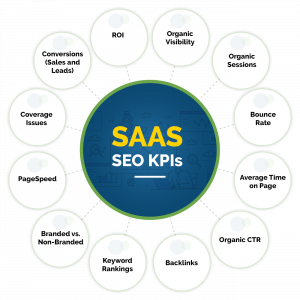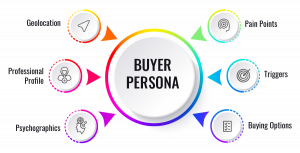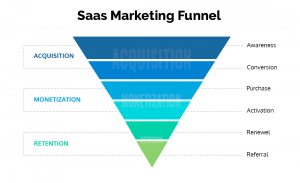Saas SEO: Strategies to Grow Your SaaS Business with SEO
September 20, 2022
Vikrant Modi
SaaS companies are doing an excellent job of driving customer acquisition. However, this has been done primarily through paid marketing strategies, such as affiliate marketing, and Google Ads.
SaaS brands are quickly realizing that maintaining the cost for these channels is not sustainable. More importantly, when you stop investing in them, the traffic stops abruptly, and so do sales.
Thus, SaaS SEO has become a primary point of attraction as it has the potential to deliver sustainable, organic growth. More importantly, it is a long-term campaign with long-lasting results.
What is SaaS SEO?
SaaS SEO is the process of working on a SaaS brand’s website to bolster its presence on SERPs. The strategy translates to an increase in the company’s web traffic, which means acquiring organic leads for successful new customer acquisition.
A typical SaaS SEO strategy focuses on multiple things, including keyword identification, content marketing, traffic building, and rank tracking.
The essential ingredients of SaaS SEO remain the same as any other SEO strategy because of similar Google ranking factors. For any SEO strategy, the following factors are always similar:
- Website Speed and Interface
- On- and Off-Page Activities
- Technical Implementations
Additional Information: What is SEO
But how is SaaS SEO different from SEO for any other business?
SaaS is a rapidly growing industry domain. Many people are interested in SaaS products, but at the same time, many are unaware of them. SaaS SEO intelligently targets these searchers and ensures considerable presence of your website on search results.
Therefore, SaaS SEO goes beyond targeting a set of keywords. You will need valuable content to capture user queries and marketing activities to create demand and generate leads for your SaaS brand.
Why do SaaS Companies Need an SEO Strategy?
As mentioned earlier, SaaS SEO is sustainable, long-lasting, and aptly targets your audience, but the reasons to invest in this strategy are many.
Massive Scope for Growth:
SaaS SEO:
- Integrates the power of storytelling using SEO content
- Targets your target audience at every stage of the funnel
- Utilizes CRO insights to drive more conversions
- Helps you beat your competitors with a robust web presence
- Provides you with tools to actively optimize CAC (Customer Acquisition Cost)
Collectively, these have the potential to help your SaaS brand achieve transformational growth. More importantly, it gives you the power to track various metrics like user engagement, links, search results rankings, website health, etc.
Growth from SaaS SEO isn’t Limited to Search:
For any SaaS strategy to be effective, you need high-quality content. Whether it is for the website or off-page activities, valuable content can educate, engage, and delight your potential customers. Thus, integration of a viable content marketing strategy can expand the growth avenues from search to social media, email, video, and even paid channels.
A Sustainable Model for New Customer Acquisition:
Compared to paid channels or paid marketing to drive customer acquisitions, SaaS SEO offers a much more sustainable model. Moreover, when you get more clicks or traffic from paid channels, you have to pay more. In contrast, when the number of clicks and leads increases from SaaS SEO, the CAC (Customer Acquisition Cost) decreases. When you stop investing money in paid marketing, clicks from potential customers also stop. However, SaaS SEO will remain viable and valuable for a long time.
Key Steps to Build an Effective SaaS SEO Strategy
To build a successful SaaS strategy, you need to adopt a comprehensive approach targeting multiple areas.
Set Practical Goals and KPIs:
You need to set two sets of goals for SaaS SEO:
SEO KPIs:
The first thing is tracking typical SaaS SEO KPIs using a range of tools like Google Analytics, Google Ads, SEMRush, etc., and data-driven insights.

Business-Level Goals:
While it’s much easier to identify goals like “improve new user sign-ups”, you must be mindful when setting up these objectives. These should be actionable and achievable for all involved stakeholders and parties. You can also align your goals with respect to the SEO campaign. A few goals you can create are:
- Generating Demand for a Particular SaaS Product
- Formulating the Reasons for Customers Dissatisfaction
- Driving New Customer Acquisition from Organic Search
- Finding Ways to Optimize the Website User Experience
- Creating a Robust Partner Network
Building an Effective Customer Persona:
Your SaaS SEO strategy is fundamentally futile without identifying a proper target audience. It is highly advisable to know who you are targeting to solve their pain points and correctly present the information as well as the website. For instance, if you are implementing a B2B SaaS SEO strategy, the target audience should be businesses.
There are four ways you can build an effective customer persona:
Make a SaaS-Brand Specific Customer Persona Template:

Use Data-backed Insights:
Data-backed insights can be pivotal in creating a buyer persona. Here, you can take data from existing customers, collect information from the sales team, or conduct market research.
Leverage Tools:
Using tools like Google Analytics to collect data on demographics, age, gender, etc., is another viable option.
Learn What the Competitors are Doing:
Apart from integrating unique elements, the most ideal way to collect insights is by learning from what competitors are doing.
Keyword Research and Identification:
There are various facets of conducting keyword research for SaaS SEO. You may have to do a competitor analysis and use tools like SEMRush, Google Keywords Planner, and Google Trends. This also requires you to take a deep dive into the pain points of your target audience as the marketing funnel, which can be categorized into three categories:
Top of the Funnel:
These keywords are the easiest to target. Top-of-the-funnel keywords are typically used by searchers in the early stages of the purchasing journey; at a time they haven’t really made up their minds. Here, customers do not want to read salesy content, but it is a golden opportunity for brand awareness, integrity, and engagement. You ought to target keywords to create informative blog posts, infographics, etc.
Middle of the Funnel:
The middle of the funnel is the searchers who have shown a desire for a certain solution and are in the process of researching and evaluating. Here, you ought to target comparison keywords, pros & cons, checklists, etc.
Bottom of the Funnel:
Since these searchers are closest to conversions, you need to identify keywords to create persuasive content that directs them to make a decision. For instance, if a user is searching for a keyword like “workers management platforms purchase”, they have a high intention of making a purchase.

Define Keywords to Optimize Your Platform’s Landing Pages:
Integrating the right kind of keywords into your commercial pages is highly important. This step will ensure you appear in the SERPs for these keywords and drive the searchers to your landing pages who are the closest to converting.
Consider keywords like:
- Sales enablement software,
- Scheduling software,
- Free CRM,
- Workers management platforms, etc.
Searchers who are using these keywords on search engines intend on purchasing or subscribing to a SaaS platform.
Create Content That is Valuable to the Target Users:
The success of your SaaS SEO strategy is directly tied to content quality. More importantly, quality content will help you outrank and outperform your competitors. Still, what are actionable points you can implement to improve the quality of your content?
Make a Content Strategy:
It is advisable to build a content strategy that serves short and long-term goals targeted around your keyword strategy. The content you are writing should complement the target audience, SaaS industry trends, brand expertise, etc. In addition, you should prioritize writing for the audience at the bottom of the sales funnel since the keywords volume for these will be higher.
Add Useful Information:
The written content should act as a bridge between the user/reader and the software or service you provide. Many marketers make the mistake of writing content only for the sake of integrating keywords or beating their competitors’ word count. But understanding the search intent is pertinent to deliver actual value to the searcher.
Include Interactive Elements:
Focusing on the formatting, images, infographics, and the blog UI are some of the most important elements. Not only do these improve the reading experience but also play a pivotal role in rankings.
Tackle Technical SEO and On-page Optimizations for SaaS Websites:
Content plays a very important role in SaaS SEO, but technical SEO is of equal importance. For instance, if your website is undergoing a few technical issues from the perspective of on-page SEO, all your SaaS SEO strategies may not yield any positive results.
You can use a site audit tool like Ubersuggest or SEMrush to find the gaps and implement strategies accordingly.
Promote Your Content to Earn Backlinks:
For keywords with high search volume, you need backlinks for them to rank high on SERPs. But you cannot just do a standard link building strategy. Getting a lot of irrelevant traffic does not matter. The best practice is to drive referral traffic, build your position as an industry expert, and find target customers.
A viable link building strategy for SaaS brands may include Digital PR, brand mentions, broken link building, and guest posting (with either dofollow or nofollow attribute as per the website you are guest posting on).
Measuring Results for SaaS SEO Strategies:
When you implement any SEO or digital marketing strategy, measuring the results is crucial. However, there has to be a structural way to check the effectiveness of your SaaS SEO strategy. Typically, you should check the:
- Rankings on SERPs for the targeted keywords
- Traffic to your website from organically targeted channels
- Conversions to track the converted users from organic channels
Furthermore, measuring results is crucial, especially when you work with a SaaS SEO agency. The viability of the services will be directly tied to the results they can deliver.
So when can you see the results of your SaaS SEO strategy?
This is a straightforward question that many SaaS brands ask us. However, this is quite a difficult question to answer without properly understanding the product, industry, and competitive landscape.
For instance, if you are a big SaaS enterprise and have thousands of web pages, you may need an Enterprise SaaS SEO strategy, which requires you to target a plethora of keywords.
Here, you need to check the brand’s share of voice in the search results to get an idea of the strategy’s success. Remember, this is a seismic shift and will take at least 3-6 months to see actual results. But you get organic leads, which is indispensable.
So let’s understand the time as a step-by-step approach:
Keywords Research:
If you have not identified the target keywords, it will take at least a month to do proper keyword research.
Website’s Technical Foundation:
Fixing the technical bottlenecks on a website is crucial for ensuring Google easily crawls your site. This will require you to fix the on-page issues, page load speed, mobile version of the website, etc. Making these changes also takes time.
Content for Target Keywords:
Having enough content for the target keywords is crucial for getting results from SaaS SEO. For this, you need to build a long and short term content strategy. This step is also time consuming and can extend for at least 2-3 months.
These are only estimations, and more importantly, things like backlink profiles and industry trends are also involved.
SEO is an organic process, i.e., it takes time to see results. It is crucial to keep in mind that SEO isn’t linear; SEO delivers transformational growth to SaaS brands, i.e.,
- Organic presence on search engines
- Traffic from prospective users
- Meeting the search intent
- Get more business
Conclusion
SaaS SEO has the potential to bring transformational growth to your brand. Investing in this strategy will be worthwhile. We have outlined the importance of SaaS SEO, the strategies you need, the results it can deliver, and how long it will take to see results.
If you have any other questions on the topic or would like to learn about our SaaS SEO services, please connect with our team.